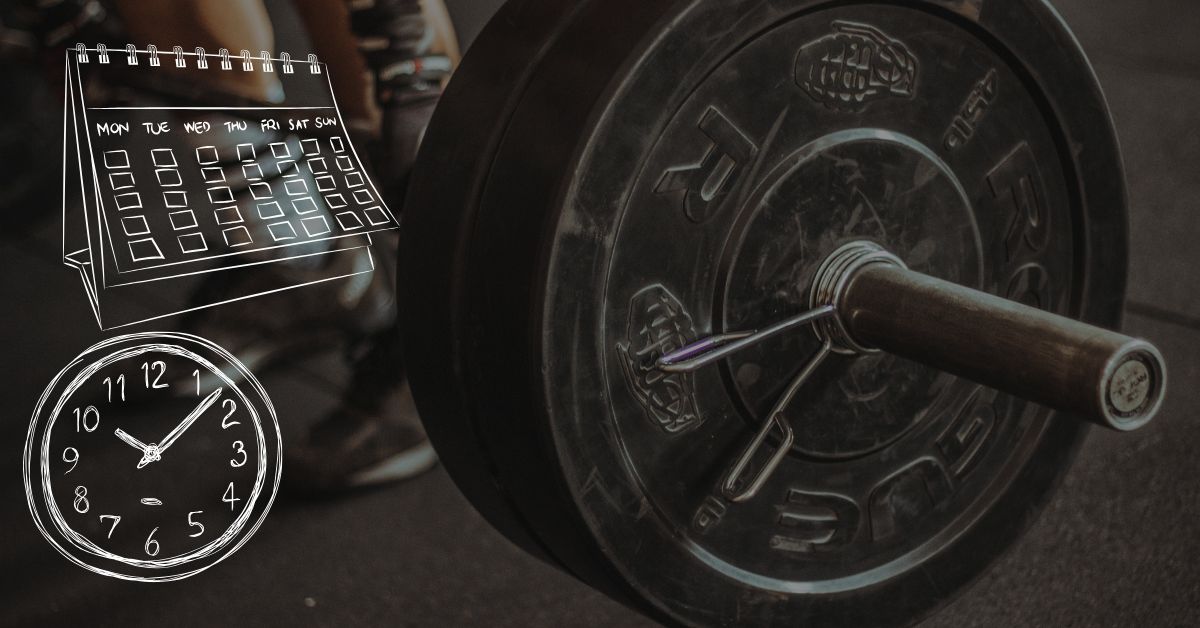Get ready to kick off winter with 7 Bamboos RFC!…

Overcoming the Frustration of Lack of Time to Train Effectively: A Guide for Rugby Players
Time management can be one of the biggest frustrations rugby players face when it comes to fitness.
Balancing work, family, and social commitments makes finding time to train feel like an uphill battle.
Maintaining peak fitness is crucial for rugby players at every level, whether you’re competing professionally or just enjoying the sport recreationally.
In this post, we’ll explore the causes of this frustration, strategies to maximize your training efficiency, and ways to incorporate effective workouts into your busy schedule.
Why Time is a Constant Challenge for Rugby Players
Rugby is an intense, high-impact sport that demands strength, speed, endurance, and agility.
It’s not enough to show up on game day; staying fit requires weight training, cardiovascular conditioning, and recovery sessions.
The physical toll of rugby and the need to build fitness levels can make training time a real challenge.
Many players juggle work, studies, and personal commitments, so fitness often slips down the priority list.
This leads to frustration when fitness declines, or performance during matches starts to suffer.
Common Mistakes in Rugby Fitness Training
Before diving into solutions, let’s look at common pitfalls that worsen time scarcity:
1. Trying to Do Too Much: Many players cram in hours of training to make up for lost time, leading to burnout and injury.
2. Lack of Structure: Training without a clear plan wastes time. Players spend too much time on exercises that aren’t as beneficial for rugby performance.
3. Neglecting Recovery: When time is limited, many players skip recovery workouts like stretching, mobility, and cool-downs. However, recovery is essential to prevent injury.
4. Overemphasis on Cardio: While cardio is important, spending too much time on long, steady-state cardio reduces time available for strength and skill work.
Strategies for Effective Rugby Fitness Training When Time is Limited
1. Prioritize Quality Over Quantity
To overcome time constraints, focus on quality over quantity. You don’t need hours in the gym to see results—train smarter.
Focus on compound movements like squats, deadlifts, and bench presses. These exercises target multiple muscle groups at once, building strength and endurance efficiently.
High-Intensity Interval Training (HIIT) also helps you get more from your workouts in less time.
2. Create a Time-Efficient Training Plan
A well-structured plan is key for busy rugby players. Break your week into short sessions that focus on different aspects of fitness:
– Strength Training: Focus on compound lifts and explosive exercises for 45 minutes, two or three days a week.
– Cardio & Conditioning: Do 20-30 minutes of HIIT or sprint drills twice a week. Combine drills with ball-handling to improve skills.
– Mobility & Recovery: Dedicate one day to mobility and recovery. You can even stretch between meetings.
3. Use Micro-Workouts Throughout Your Day
Micro-workouts, like a 10-minute bodyweight circuit, can fit into work breaks or home life. These short sessions maintain your fitness when time is limited.
4. Combine Fitness with Rugby Skill Work
Combine fitness work with rugby-specific drills, like sprint intervals or agility drills, to train efficiently. Add competition to keep motivation high.
5. Train at Home When Necessary
If getting to the gym is tough, train at home. Use minimal equipment like resistance bands or do bodyweight exercises like push-ups and lunges.
6. Stay Accountable
Accountability is key. Use a coach, teammates, or an app to stay on track. Teammates can help organize group workouts or share progress.
7. Maximize Recovery
Recovery is just as important as training. Use active recovery techniques like foam rolling, yoga, and stretching to stay fit. Don’t forget about hydration and sleep!
Conclusion: It’s All About Efficiency
Finding time to train is tough, but these strategies can help you overcome the challenge. Focus on quality over quantity and work smarter, not harder. This way, you’ll stay fit and prevent injuries, even with a busy schedule.
With these tips, you can maximize your time and performance on and off the field.
Further Reading and Resources
- HIIT Workouts – Try this great HIIT Workout from Men’s Health.
- Rugby-Specific Mobility and Stretching – Check out this great YouTube channel offering mobility routines tailored to rugby players.
- Online Rugby Training Programs – Access professional online rugby coaching services like Rugby Bricks or The Rugby Site.
- Rugby Fitness Research – Learn more from scientific studies or rugby fitness books like “Complete Conditioning for Rugby” available on Amazon.
- 7 Bamboos Blog – Scroll through 100s of rugby fitness-related articles in our blog section





